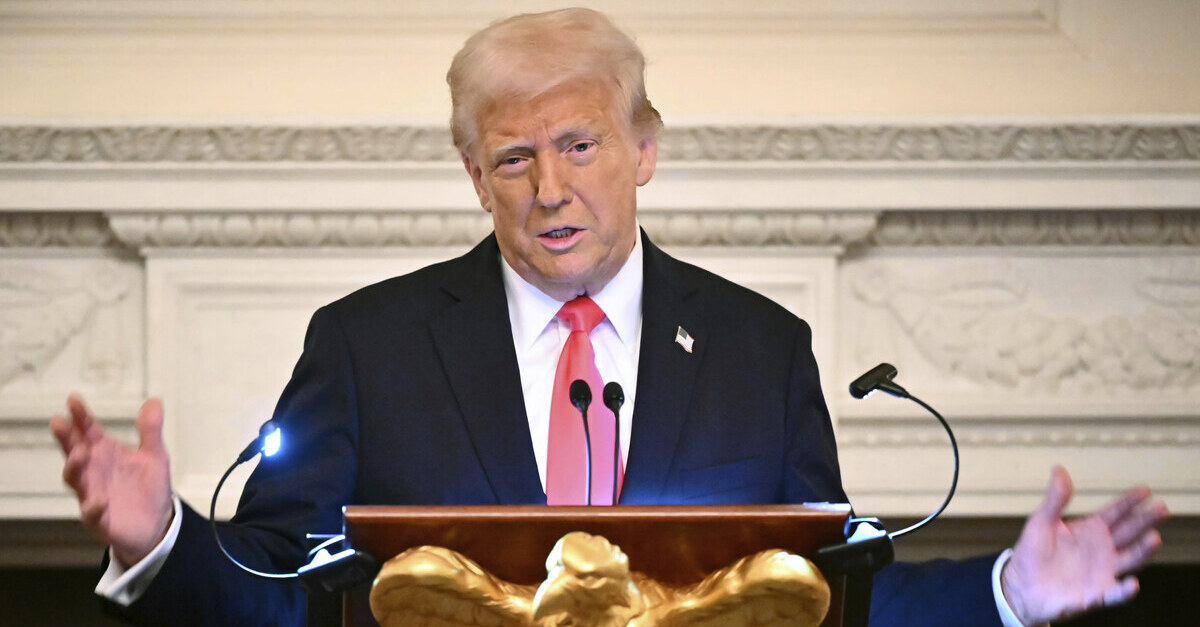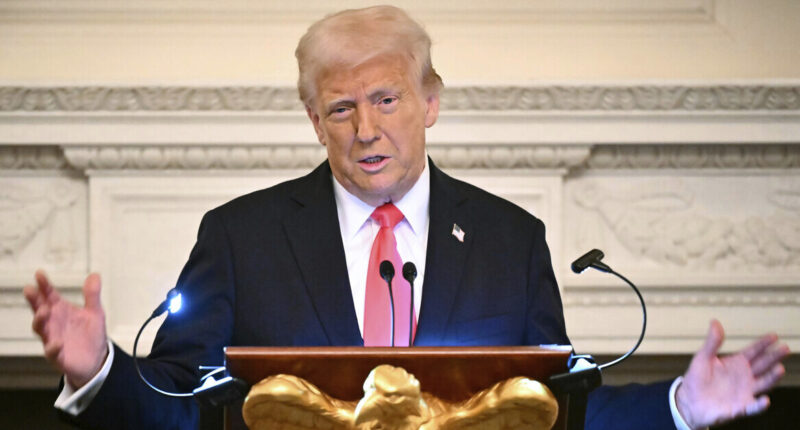
President Donald Trump is seen making gestures while speaking at an Iftar dinner in the State Dining Room at the White House in Washington on Thursday, March 27, 2025 (Pool via AP).
In Colorado, a federal appeals court has turned down an urgent plea from the Trump administration that aimed to pause a previous court decision. This decision had halted the use of an old wartime law to speed up the removal of Venezuelan migrants with very little notice and almost no proper legal procedure.
A panel of three judges at the U.S. Court of Appeals for the 10th Circuit decided on Tuesday to maintain a temporary restraining order (TRO) set by U.S. District Judge Charlotte N. Sweeney on April 22. This order prevents the government from deporting individuals in Colorado under the Alien Enemies Act (AEA).
In a two-page order, the panel reasoned that the administration was not entitled to a stay of the TRO because it did not show that leaving the order in place was “likely” to cause the government to suffer “irreparable harm.”
“The government has not made such a showing in this case,” the panel wrote in the brief two-page opinion. “All members of the class are in federal custody. And given the important unresolved issues under the Alien Enemies Act and the ruling of the United States Supreme Court that no one in that proceeding be removed under the AEA until further order of that Court, there is no realistic possibility that the government could remove any member of the class from this country before final expiration of the TRO on May 6, 2025.”
“Accordingly, the emergency motion for a stay is denied,” the order concluded.
The wartime measure has been a focal point for litigation since the administration in March sent 137 migrants to a notorious work prison in El Salvador, apparently without due process, despite a court order instructing the government to return the migrants to the United States.
Federal judges in California, New York, Massachusetts, and Texas — in a case that reached the Supreme Court — have also issued court orders temporarily barring the administration from deportations under the AEA.
Sweeney had expressed doubt that Trump invocation of the AEA was constitutional, finding that the president’s March 15 proclamation was divorced from both facts and law.
Citing the original authors of several now-prominent and authoritative dictionaries, texts explaining how language was understood by the Founders, and decades of case law, Sweeney determined that the U.S. is simply not in an actual war with Venezuela or a transnational gang from within its borders, nor was the country experiencing an “invasion or predatory incursion,” as is expressly necessary for invoking the AEA.
“Satisfied with what ‘invasion’ and ‘predatory incursion’ mean, the Court could stop,” Sweeney wrote. “These words, fundamentally, demand military and wartime action. The Proclamation makes no finding that satisfies these definitional demands. Thus, to the extent the Proclamation relies on the Act’s ‘invasion’ and ‘incursion’ provisions to justify its removal powers, it does so improperly.”
Not content to leave the issue of warfare ambiguous, the judge cited recent precedent on the AEA — specifically from the case that led to the U.S. Supreme Court‘s recent guidance that all potential AEA detainees are entitled to due process via petitioning for writs of habeas corpus.
“A central limit to this power is the Act’s conditional clause — that the United States be at war or under invasion or predatory incursion,” the court’s order reads, quoting U.S. Circuit Judge Karen L. Henderson.
The order goes on, at length:
Petitioners’ first argument, proceeds from a straightforward premise. The President’s authority under the Proclamation is “vested” under the Act. The Act demands, as a “statutory requirement,” an “invasion or predatory incursion.” And because the Act’s “text and history” use these terms “to refer to military actions indicative of an actual or impending war” — not “mass illegal migration” or “criminal activities” — the Act cannot sustain the Proclamation. The Court agrees with Petitioners.
Prior to issuing her written order, Sweeney voiced concerns that the government’s resumption of swift and collective deportation flights using the obscure, 18th-century wartime authority was likely to run afoul of due process. The court’s order formalized those concerns by extending an extant temporary restraining order until May 6.
Love true crime? Sign up for our newsletter, The Law&Crime Docket, to get the latest real-life crime stories delivered right to your inbox.









